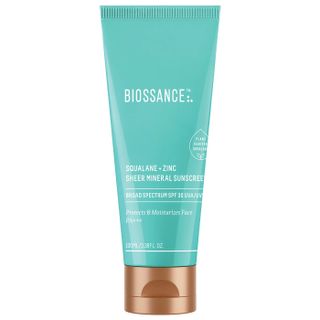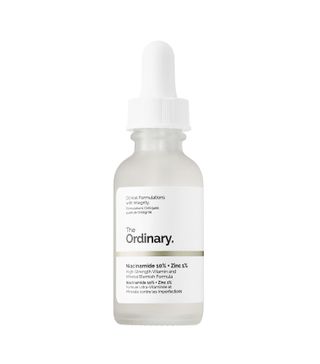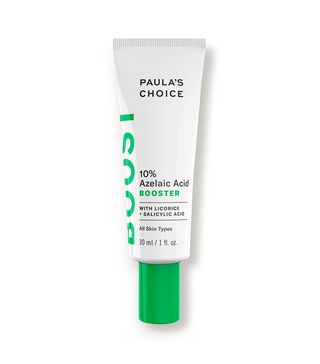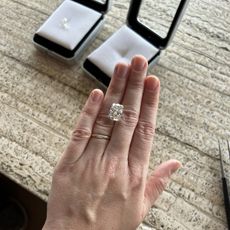I Found the Products That Work Wonders for Rosacea-Prone Skin
When you have rosacea, you know that once you find a skincare routine that keeps it under control, it's hard to stray from your tried-and-true. Introducing new products can be tricky because they could either make your skin condition better or make it a lot worse. But the tricky thing is, it can be tough to find products that actually do your skin good. Trying to shop for skincare products can be a totally frustrating process.
First, it helps to know exactly what rosacea really is. So for those in the know, it's a common skin condition that causes redness and visible blood vessels on the face. "It often begins with a tendency to blush or flush more easily than other people," explains Kathleen S. Viscusi, MD, FAAD, FACMS, co-founder and partner at Dermatology and Surgery Specialists of North Atlanta (DESSNA). "Each time we flush and blush, tiny capillaries are at risk and prone to breaking and leaking. This cyclical process of flushing and blushing damages the skin, leaving behind visible red spots and blood vessels after a flare has subsided. Rosacea can present as only the redness described above—a combination of redness and papules and pustules (papulopustular, ie acne-like. And in as many as half (or more) of patients with cutaneous rosacea, it may also affect the eyes (ocular rosacea). Left untreated, ocular rosacea can cause long-term damage to the eyes. A dermatologist is essential to consult when managing this condition."
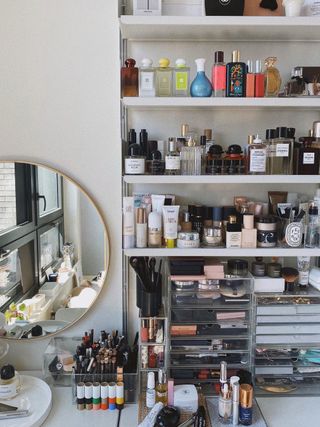
What's more frustrating is that the cause of rosacea isn't known, although genetics might play into it. "It can be exacerbated by environmental factors, certain foods, medications, and cosmetic products," explains board-certified dermatologist and founder of Skin Wellness Dermatology Corey L. Hartman, MD, FAAD. "Common triggers for rosacea include hot drinks, spicy foods, red wine, other alcoholic beverages, temperature extremes, sunlight, wind, emotions, exercise, and vasodilator drugs."
And anyone can develop rosacea, adds Howard Sobel, MD, founder of Sobel Skin and attending dermatologist and dermatologic surgeon at Lenox Hill Hospital in New York. You can be more prone to it if you have family members with rosacea; are female with pale and sun-damaged skin; smoke; and are over the age of 30.
How to Treat Rosacea
The condition is chronic and not exactly curable, but there are a variety of remedies that may work. Viscusi says that each individual's treatment plan will vary based on the severity of the case, but it can be treated with topical therapies and medications (prescription and over-the-counter options). And much of the treatment and prevention of flare-ups is also avoiding triggers and regularly using broad-spectrum UVA/UVB sunscreen that's SPF 30 to 50 (or higher).
"Every rosacea patient should use a gentle hydrating cleanser; a physical, mineral-based sunscreen; and a cream-based moisturizer. Hyaluronic acid also helps to hydrate and glycolic acid is a great humectant exfoliant," Hartman says. And you might want to stay away from a toner, Sobel adds, since it can irritate the skin and make it appear redder.
How to Shop for Products
When shopping for products, you'll want to look at the ingredient labels and choose items that will help you manage the rosacea instead of making it worse. When you have rosacea, you most likely have sensitive skin that can become more inflamed when using products with certain ingredients. So, opt for gentle, skin-soothing, and calming skincare items.
"Niacinamide is one of the best ingredients for soothing rosacea and can be found in many cosmeceuticals or over-the-counter products," Sobel says. "Azelaic acid when used in a cream can help to reduce redness while also treating acne. It is extremely important to wear sunscreen every day to prevent further flare-ups as sun damage fuels rosacea." Hartman also recommends looking for products that contain green tea, argan oil, and aloe.
As for the ingredients to avoid, you'll want to stay away from alcohol, glycolic acid, benzoyl peroxide, lactic acid, sodium lauryl sulfate, propylene glycol, witch hazel, camphor, menthol, peppermint, eucalyptus oil, and fragrances. This list of items can really exacerbate flare-ups, according to the dermatologists we spoke to.
And if you're ready to shop, take a look at some options below.
Best Skincare Products for Rosacea-Prone Skin
Cleansers
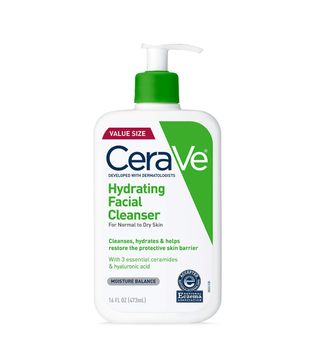
"This is a good basic cleanser that doesn't strip the skin of all oil and nutrients but provides an effective means of getting rid of dirt and debris," Hartman says.
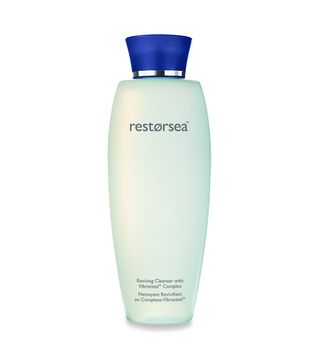
Restorsea's cleanser is Hartman's favorite for rosacea patients. "It is a gentle, non-irritating gel cleanser that removes makeup and dirt without stripping the skin of essential oils," he says.
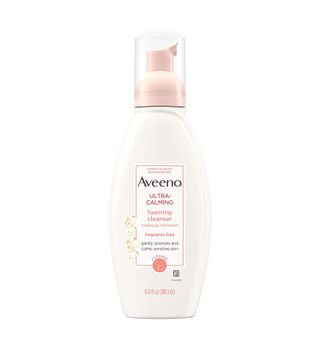
This foaming cleanser is powerful enough to remove makeup, but it's gentle enough for dry, sensitive skin. It is enriched with feverfew extract, which is related to chamomile, to target redness and soothe irritated skin.
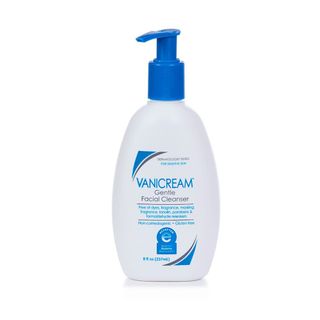
Vanicream's products are free of irritants like dyes, fragrances, lanolin, parabens, formaldehyde, and other preservatives. This cleanser is oil-free and non-comedogenic.
Sunscreens
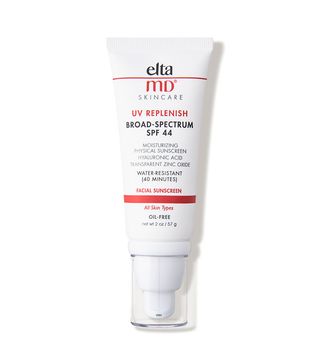
"This is a moisturizing sunscreen that contains both titanium dioxide and zinc oxide and no chemicals. Hyaluronic acid adds a hydrating boost as well," Hartman says.
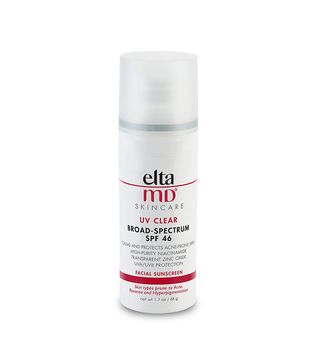
"EltaMD's UV Clear Broad-Spectrum SPF 46 is an ideal SPF for my rosacea-prone patients," Viscusi says. "I love that it effectively hydrates without clogging pores or irritating skin with fragrance. A major plus of this SPF is that it contains niacinamide, which is a great anti-inflammatory to reduce redness. It's oil-free and feels super comfortable and lightweight on the skin."
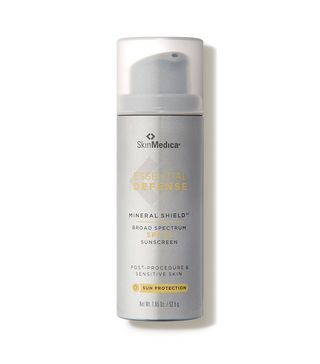
This sunscreen from SkinMedica is specially formulated for sensitive and post-procedure skin. It's a lightweight and sheer mineral formula that has redness-fighting ingredients like green tea extract and caffeine.
Moisturizers and Creams
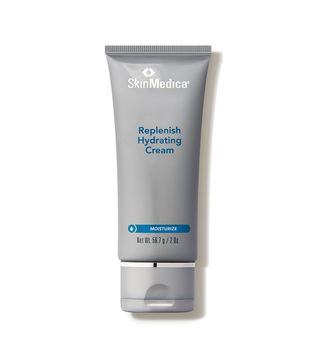
"This is a go-to that refreshes, soothes, and moisturizes sensitive skin. It is appropriate for all skin types with its balanced approach and combination of ingredients, such as green tea leaf extract and vitamins E and C, among others, making it a staple of my own," Viscusi says.
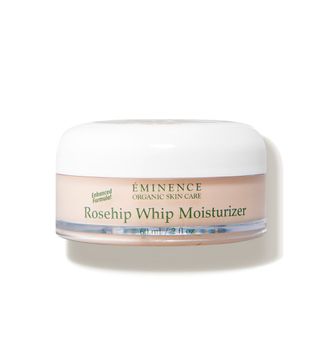
This soothing moisturizer works well on oily, sensitive, and rosacea-prone skin types. The formula contains rose-hip extract (for hydration), lemon (to tone), and a BioComplex (to reduce the appearance of wrinkles).
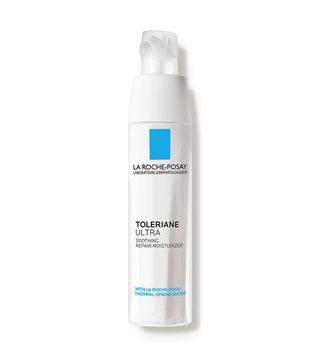
While this moisturizer is super hydrating, it's not heavy or greasy. It's infused with shea butter, thermal spring water, and neurotensin to relieve parched skin and soothe inflammation.
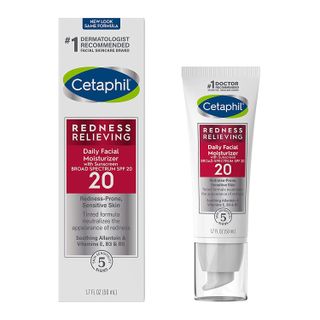
This a great drugstore option for a daily moisturizer. The tinted formula can neutralize any redness and even skin tone. It also contains a mineral-based sunscreen with SPF 20.
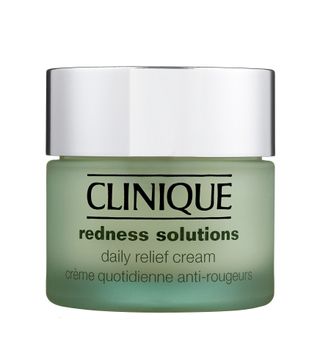
Clinique's oil-free moisturizing cream is suitable for rosacea-prone skin types. The key ingredients are probiotics, which strengthen the skin's natural barrier, balance the skin's microbiome, and calms irritation and redness.
Treatments and Serums
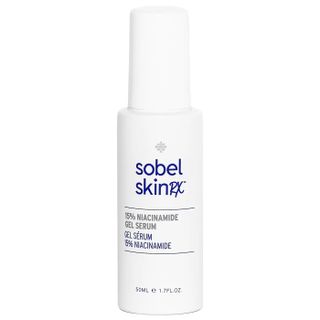
"My Sobel Skin Rx 15% Niacinamide Gel Serum is powered by maximum-strength 15% niacinamide to minimize the look of pores, revitalize, firm, and smooth the skin," Sobel says. "The lightweight gel formula deeply penetrates the skin to strengthen and protect its epidermal-dermal barrier from environmental stressors, while visibly improving overall texture and tone. It also hydrates and locks in moisture for skin that is twice as supple, making it the anti-aging multi-tasker you've been missing, and a great product for minimizing rosacea."
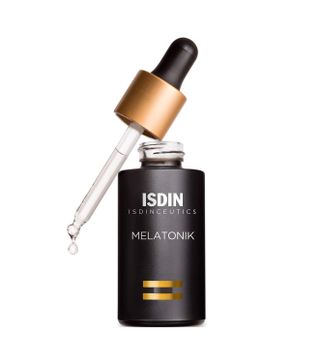
Both Hartman and Viscusi recommend Isdin's Melatonik, with Hartman adding that it's a great alternative to retinol for patients with rosacea: "It's my personal favorite. This restorative night serum helps to stimulate natural antioxidant defenses to assist the skin in recovering from daily stresses, including irritants that affect rosacea," Viscusi says. "It also uses a natural plant-derived alternative to a retinal, bakuchiol. Bakuchiol provides the same key benefits of retinol without the irritation, helping to repair, revitalize, and replenish the skin over the long term."
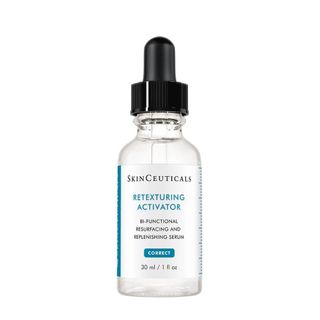
"It contains 10% glycolic acid in a lightweight, moisturizing gel to allow for humectant exfoliation without irritation," Hartman says.
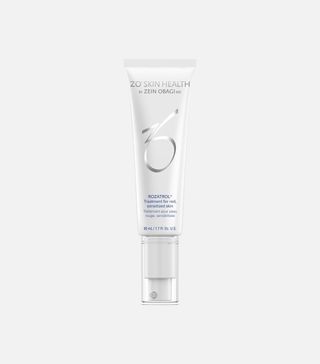
"Zo Skin Health's Rozatrol is one of my must-haves to address redness, flushing inflammation and other symptoms of rosacea. It's specifically designed to treat this condition," Viscusi says.
Next, Sensitive Skin Types: These Are the Skincare Brands That Just Work
This article was originally published at an earlier date and has since been updated.
Sarah is lifestyle writer and editor with over 10 years of experience covering health and wellness, interior design, food, beauty, and tech. Born and raised in Los Angeles, she attended New York University and lived in New York for 12 years before returning to L.A. in 2019. In addition to her work on THE/THIRTY and Who What Wear, she held editor roles at Apartment Therapy, Real Simple, House Beautiful, Elle Decor, and The Bump (sister site of The Knot). She has a passion for health and wellness, but she especially loves writing about mental health. Her self-care routine consists of five things: a good workout, “me” time on the regular, an intriguing book/podcast/playlist to unwind after a long day, naps, and decorating her home.
